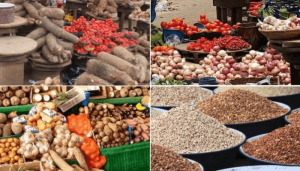
Nigeria is currently grappling with a severe petrol scarcity and poor electricity supply, leaving citizens frustrated and angry as they struggle to go about their daily lives.
Naija News reports that the situation is dire, with long queues resurfacing at filling stations across the country, and commercial and vehicular activities grinding to a halt.
The scarcity of Premium Motor Spirit (PMS), also known as petrol, has seen prices skyrocket, with some stations selling the product for as high as N1,500 per litre. Black market operators are taking advantage of the situation, selling petrol in jerry cans at exorbitant prices, ranging from N2,000 to N3,000 per litre.
The impact on transportation has been significant, with commuters forced to pay increased fares to cover the high cost of petrol. In Lagos, for instance, commuters are paying N2,000 from Mile 12 to Mile 2, a distance that previously cost N1,000. Similarly, transporters are increasing fares by 100% to cover the high cost of petrol.
But it’s not just transportation that’s being affected. The scarcity of petrol has also led to a hike in foodstuff prices, especially pepper. Sellers are complaining about the high cost of transporting their goods, and citizens are feeling the pinch.
Adedeji Abiodun, a Lagos resident, described the situation as “terrible”.
He told Vanguard: “The scarcity of petrol not only affects transportation, but foodstuff prices have also skyrocketed, especially pepper. In the last week, sellers have been complaining about the hike in the cost of transporting their goods. I’ve had to spend my two weeks’ transport fare in just three days.”
The situation is equally dire in other parts of the country. In Sokoto, some filling stations are selling petrol for as high as N1,500 per litre, while black market operators are selling for between N2,000 and N3,000 per litre.
A former Commissioner in Sokoto State, who was seen grappling to get a gallon of petrol for his car, blamed petroleum marketers in the state for the chaos.
“I’m 74 years old, but throughout my entire life, I’ve never witnessed this kind of fuel scarcity. Many people believe the situation was worsened because marketers were allegedly hoarding the product to create artificial scarcity and tension in the state,” he said.
The Independent Petroleum Marketers Association of Nigeria (IPMAN) has said that the petrol scarcity could take more than two weeks to normalize.
According to IPMAN’s Public Relations Officer, Chinedu Ukadike, the product is not available in the country, and it has become a challenge to source it because most refineries in Europe are undergoing turnaround maintenance.
The removal of petrol subsidy by President Bola Tinubu in May 2023 has also had a negative impact on the socio-economic development of the country.
The high cost of living and other economic issues have combined to worsen the current situation, leading to an increase in the country’s poverty index.
The lack of job opportunities is at the core of the high poverty levels, and high inflation has taken a toll on household welfare.
Price increases have pushed more Nigerians into poverty, and the petrol situation has compounded the woes of poor electricity supply.
Most Nigerians are now resorting to solar power as a cheaper alternative source of electricity. In most households and business places, and even government establishments, public power supply is being replaced with solar energy.
The Nigerian Labour Congress (NLC) and the Trade Union Congress (TUC) have given the Federal Government a seven-day ultimatum to reverse the increase in electricity tariff.
According to the unions, “it is unethical to force Nigerians to pay higher tariffs for non-existent electricity.”
Citizens are groaning under the weight of the petrol scarcity and poor electricity supply.
Commuters are frustrated, transporters are struggling, and businesses are suffering. The situation is dire, and the government needs to take immediate action to address the suffering of citizens.
In the words of Sunday Adah, a driver who has been waiting in one of the queues, “This government is wicked and always bent on making us suffer. I do not understand if they enjoy seeing us suffer. I have been in this queue for more than four hours, and I have not been able to get fuel.”
Ese Onayomake, an Abuja-based football entrepreneur, described the situation as “tough”.
“Seriously, I won’t tell you lies, this fuel scarcity has not been funny. To make matters worse, the light situation has been very terrible. The electricity company has caused me a lot of trouble with their erratic power supply. All the perishable things in my fridge got damaged, including fresh tomatoes, fresh pepper, fish, meat, and vegetables. The heat at night is simply unbearable,” he told Vanguard.
The post Petrol/Electricity Scarcity: Nigerians Lament As Transport, Foodstuff Prices Increases appeared first on Naija News.


